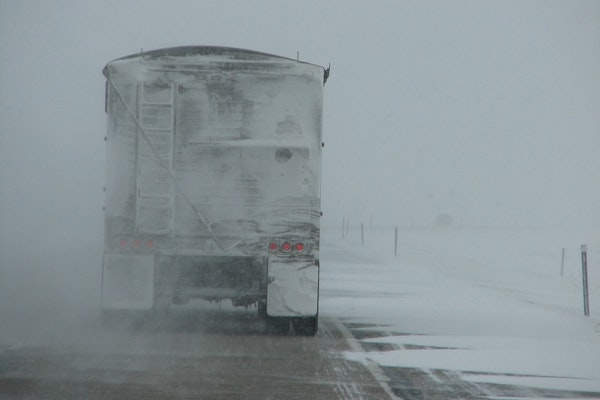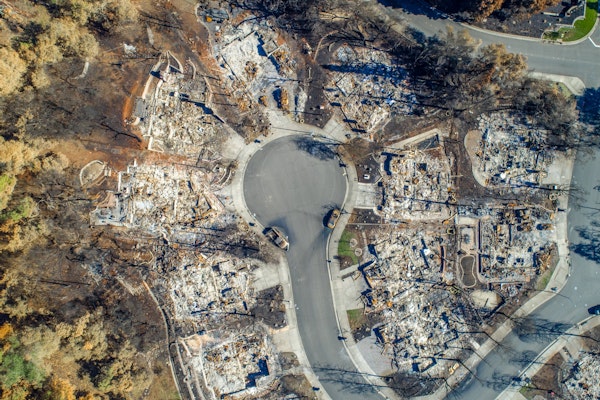
Fitch Forecasts 2026 P/C Insurance Results to Mirror 2024
Slower premium growth, stabilized catastrophe trends, and softening property rates are expected to shape a return to 2024-level underwriting performance in 2026.
December 12, 2025
Auto
Catastrophe
Insurance Industry
Legislation & Regulation
Property

Winter Storms and Truck Crashes in Tulsa Raise Liability, Tech, and Safety Concerns
Freezing rain and ice turn Tulsa roads into danger zones for truckers. Insurance tech, liability disputes, and route risk maps shape the high-stakes response.
December 12, 2025
Auto
Liability
Litigation
Risk Management
Technology

Record Flooding in Washington Forces Over 100,000 to Evacuate
Days of relentless rain pushed Skagit and Snohomish Rivers beyond 1990 records, overwhelming infrastructure and triggering widespread evacuations.
December 12, 2025
Catastrophe
Insurance Industry
Property
Risk Management

Holiday Work Stress and Layoff Anxiety Cloud Employee Time Off, Survey Finds
New Harris Poll shows employees struggle to disconnect over the holidays as burnout, financial pressures, and job insecurity rise. AI upskilling gains traction during downtime.
December 11, 2025
Education & Training
Insurance Industry
Risk Management
Technology

Disney Sued Over Restrictive Disability Access Changes at Theme Parks
Disney faces legal and shareholder challenges over new limits to its disability access program, with critics arguing the company is denying necessary accommodations.
December 11, 2025
Insurance Industry
Legislation & Regulation
Liability
Litigation
Risk Management
California
Florida

State Farm Under Investigation Over $5B in California Wildfire Claims
California regulators and LA County are investigating delays, denials, and AI use in State Farm’s wildfire claims process after $5 billion in payouts.
December 11, 2025
Catastrophe
Legislation & Regulation
Technology
California

Water Damage, Theft Top List of Small-Business Insurance Claims in Hartford Report
The Hartford’s analysis of 1 million small-business policies shows rising costs for fire, injury, and water damage claims, with risk mitigation strategies gaining traction.
December 11, 2025
Fraud
Liability
Property
Risk Management

AI and Ontologies Are Fixing Insurance’s Data Quality Crisis
Semantic ontologies and AI-powered validation tools are transforming how insurers clean and structure their data, improving underwriting, fraud detection, and claims accuracy.
December 11, 2025
Fraud
Insurance Industry
Legislation & Regulation
Risk Management
Technology

AI Cybersecurity Advancements Drive New Safeguards and Risk Models
As AI models improve at handling cyber tasks, OpenAI is building safety layers and forming global partnerships to help defenders stay ahead of attackers.
December 11, 2025
Legislation & Regulation
Risk Management
Technology

How AI and Automation Are Redefining Value in Insurance Jobs
Insurance professionals aren’t being replaced overnight, but their role in the system is quietly shrinking as tech becomes indispensable. The real risk? Being left behind in an inevitable shift.
December 8, 2025
Insurance Industry
Risk Management
Technology

Breaking the Plastic Wave 2025: Plastic Pollution Could Triple Without Systemic Reform
A major Pew-backed study finds global plastic pollution could nearly triple by 2040 unless sweeping system-wide reforms are implemented across industries.
December 5, 2025
Catastrophe
Legislation & Regulation
Life & Health

Why Space Debris May Be the Next Uninsurable Global Threat
China’s emergency evacuation from its Tiangong space station due to a damaged capsule window shows how even microscopic debris is becoming a high-cost, high-risk hazard with no clear liability path.
December 5, 2025
Catastrophe
Liability
Technology

AI Set to Become Insurers’ Core Infrastructure in 2026
SAS forecasts AI’s shift from auxiliary tool to operational core, reshaping claims, underwriting, and fraud detection as insurers face mounting climate, economic, and regulatory pressure.
December 5, 2025
Fraud
Insurance Industry
Technology
Underwriting

Climate Change Costing U.S. Households Up to $1,300 Annually, New NBER Report Finds
A national economic analysis links rising insurance premiums, utility costs, and mortality to climate change, with low-income and high-risk areas bearing the brunt.
December 5, 2025
Catastrophe
Property
Risk Management

Agentic AI Advances Transform Insurance Operations from Sales to Claims
Agentic AI takes automation beyond chatbots, streamlining insurance processes and raising new regulatory and operational questions for claims professionals.
December 5, 2025
Insurance Industry
Legislation & Regulation
Technology





